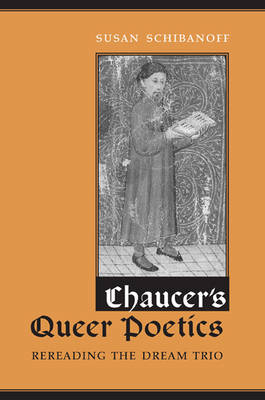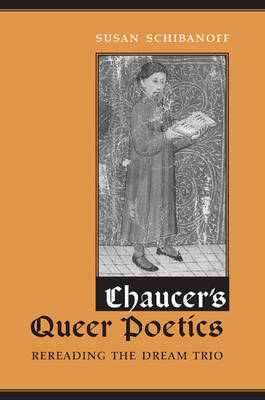
- Retrait gratuit dans votre magasin Club
- 7.000.000 titres dans notre catalogue
- Payer en toute sécurité
- Toujours un magasin près de chez vous
- Retrait gratuit dans votre magasin Club
- 7.000.000 titres dans notre catalogue
- Payer en toute sécurité
- Toujours un magasin près de chez vous
Description
Geoffrey Chaucer was arguably fourteenth-century England's greatest poet. In the nineteenth century, readers of Chaucer's early dream poems - the Book of the Duchess, House of Fame, and Parliament of Fowles - began to detect a tripartite model of his artistic development from a French to an Italian, and finally to an English phase. They fleshed out this model with the liberation narrative, the inspiring story of how Chaucer escaped the emasculating French house of bondage to become the generative father of English poetry. Although this division has now largely been dismissed, both the tripartite model and the accompanying liberation narrative persist in Chaucer criticism.
In Chaucer's Queer Poetics, Susan Schibanoff interrogates why the tripartite model remains so tenacious even when literary history does not support it. Revealing deeply rooted Francophobic, homophobic, and nationalistic biases, Schibanoff examines the development paradigm and demonstrates that 'liberated Chaucer' depends on antiquated readings of key source texts for the dream trilogy. This study challenges the long held view the Chaucer fled the prison of effete French court verse to become the 'natural' English father poet and charts a new model of Chaucerian poetic development that discovers the emergence of a queer aesthetic in his work.
Spécifications
Parties prenantes
- Auteur(s) :
- Editeur:
Contenu
- Nombre de pages :
- 460
- Langue:
- Anglais
- Collection :
Caractéristiques
- EAN:
- 9780802090355
- Date de parution :
- 07-10-06
- Format:
- Livre relié
- Format numérique:
- Genaaid
- Dimensions :
- 159 mm x 236 mm
- Poids :
- 721 g







